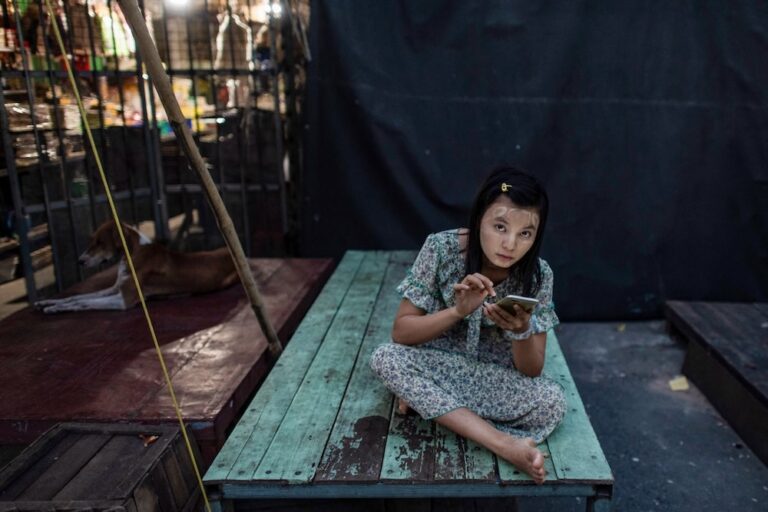(ARTICLE 19/IFEX) – The following is a 15 April 1999 ARTICLE 19 press release: BURMA – ACTS OF OPPRESSION Acts of Oppression is a timely report on Burmese censorship, published by ARTICLE 19 as the United Nations Commission on Human Rights takes its annual look at the situation in Burma and world outrage mounts at […]
(ARTICLE 19/IFEX) – The following is a 15 April 1999 ARTICLE 19 press
release:
BURMA – ACTS OF OPPRESSION
Acts of Oppression is a timely report on Burmese censorship, published by
ARTICLE 19 as the United Nations Commission on Human Rights takes its annual
look at the situation in Burma and world outrage mounts at the regime’s
treatment of Burmese leader Aung San Suu Kyi.
The report points out that under successive military governments, the law in
Burma has been used as an instrument for the suppression of rights,
particularly with respect to freedom of expression. Vague and sweeping
censorship laws shut out any criticism whatsoever of the ruling elite.
Andrew Puddephatt, Executive Director of ARTICLE 19 said:
“The international community has failed most singularly to address the
appalling human rights situation in Burma. It will take more than
handwringing to get the military government back to barracks and ARTICLE 19
is calling for creative thinking from the world’s leaders to relieve the
suffering of the Burmese people.”
ARTICLE 19’s new report lays out the so-called legal basis on which
oppression is carried out in Burma, and lays down specific ways in which
these are incompatible with international law.
Freedom of expression has been one of the prime casualties of prolonged
military rule in Burma. Since the army first began controlling the levers of
state power in 1962, numerous publications have been censored or banned;
hundreds of journalists, writers, poets, playwrights and cartoonists, as
well as pro-democracy activities have been arrested, detained or sentenced
to long prison terms, tortured, ill-treated or otherwise harassed. Tens of
thousands of ordinary people have been punished simply for peacefully
expressing their views.
Years of strong-arm military dictatorship and misrule, buttressed by one of
the world’s severest censorship regimes and systematic abuse of human
rights, have driven thousands of Burma’s citizens to seek refuge abroad.


